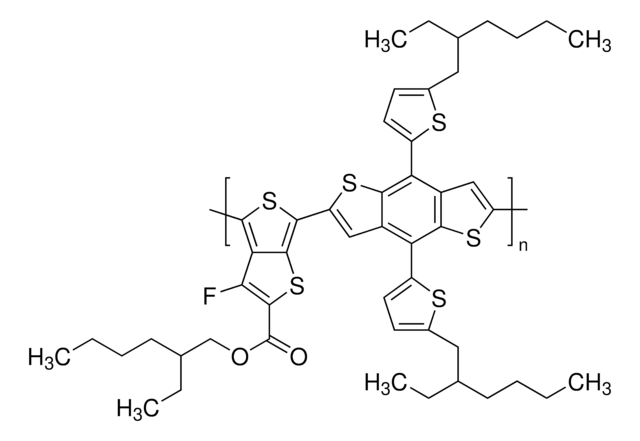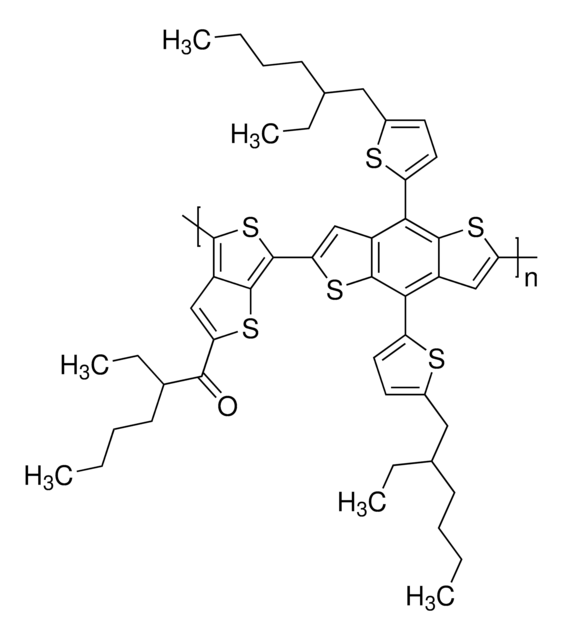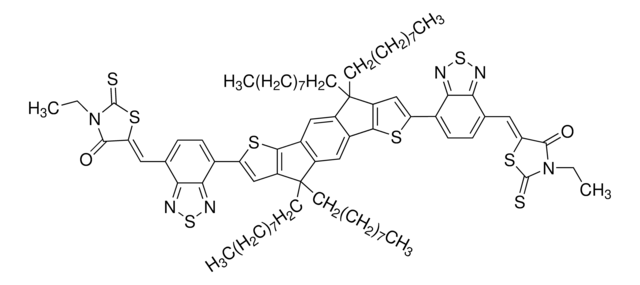906344
PBDB-T-SF
Mw ≥80,000
Synonym(s):
OS0130, PDBD-TSF, Poly[(2,6-(4,8-bis(5-(2-ethylhexylthio)-4-fluorothiophen-2-yl)-benzo[1,2-b:4,5-b′]dithiophene))-alt-(5,5-(1′,3′-di-2-thienyl-5′,7′-bis(2-ethylhexyl)benzo[1′,2′-c:4′,5′-c′]dithiophene-4,8-dione)]
About This Item
Recommended Products
description
Band gap: 1.8 eV
form
granular
mol wt
Mw ≥80,000
color
purple, Shine
solubility
chlorobenzene: soluble
chloroform: soluble
soluble (o-dichlorobenzene)
Orbital energy
HOMO -5.4 eV
LUMO -3.6 eV
PDI
~2.5
Related Categories
Application
HOMO =−5.40eV
LUMO =−3.60eV
Polymer organic solar cells (PSCs) device performance:
Device based on PBDB-T-SF:NCBDT-4Cl
Before any post-treatment
PCE= of 13.1%
After device optimizations
Voc = 0.85V
Jsc = 2.35 mA /cm2
FF = 74.3%
PCE >14%
Energy loss = 0.55 eV
The improved performance was attributed to the more efficient photo-electron conversion process in the optimal device.
Device performance based on PBDB-T-SF:ITIC-F as active layer
(ITO)/ZnO/active layer/MoO3/Al
Voc = 0.88 V
Jsc = 20.50 mA/cm2
FF = 71.9%
PCE = 13.1%
Energy loss = 0.66 eV
Storage Class Code
11 - Combustible Solids
WGK
WGK 3
Flash Point(F)
Not applicable
Flash Point(C)
Not applicable
Choose from one of the most recent versions:
Certificates of Analysis (COA)
Don't see the Right Version?
If you require a particular version, you can look up a specific certificate by the Lot or Batch number.
Already Own This Product?
Find documentation for the products that you have recently purchased in the Document Library.
Customers Also Viewed
Articles
Professor Chen (Nankai University, China) and his team explain the strategies behind their recent record-breaking organic solar cells, reaching a power conversion efficiency of 17.3%.
Our team of scientists has experience in all areas of research including Life Science, Material Science, Chemical Synthesis, Chromatography, Analytical and many others.
Contact Technical Service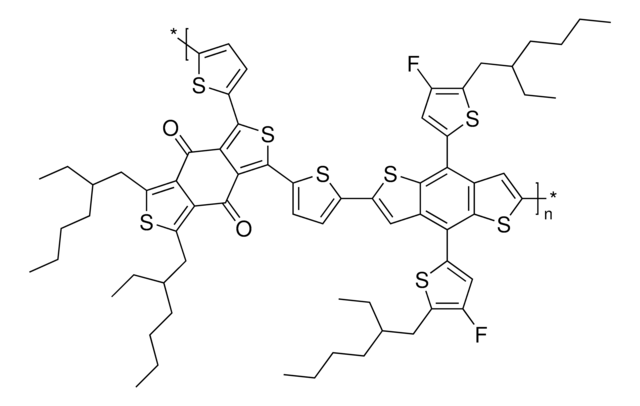
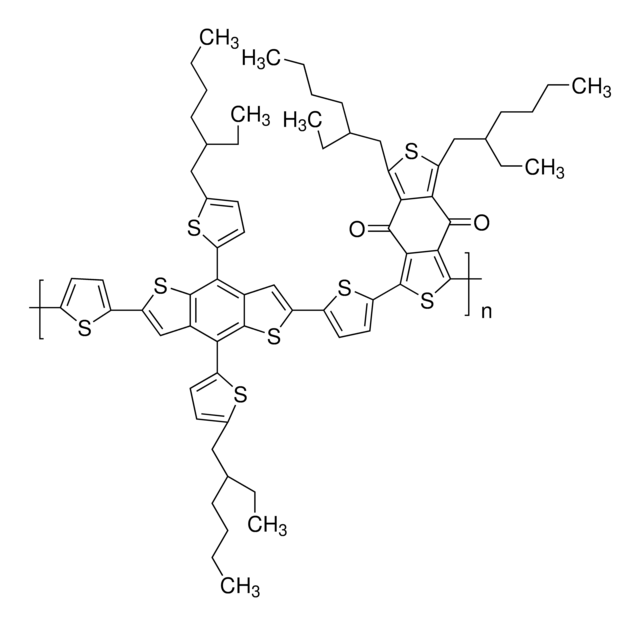

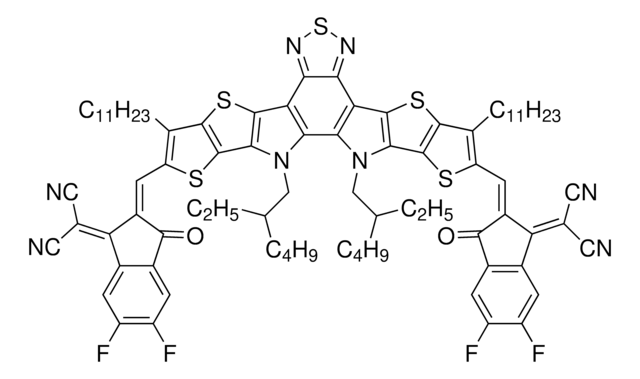
![[6,6]-Phenyl C61 butyric acid methyl ester ≥99%](/deepweb/assets/sigmaaldrich/product/structures/359/221/d990c746-0960-4c69-bf76-fe09b193824d/640/d990c746-0960-4c69-bf76-fe09b193824d.png)
![[6,6]-Phenyl C71 butyric acid methyl ester, mixture of isomers 99%](/deepweb/assets/sigmaaldrich/product/structures/716/624/9fb9f2f0-ae99-429f-8d3a-b12267976a4d/640/9fb9f2f0-ae99-429f-8d3a-b12267976a4d.png)

